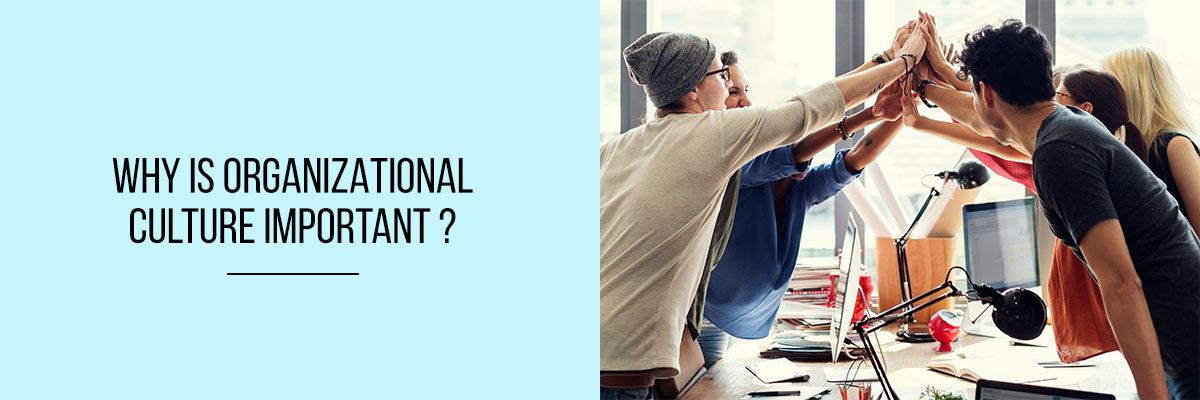What is organizational culture and what is its significance?
 |
| figure1:organizational culture;source (Compliance Prime Team, 2019). |
Culture comprises a people's customs, history,
literature, and philosophy. Everything in a company is shaped by its culture.
The operations of your business are characterized by formal and informal
attitudes and behaviors. The workplace is made legal. A company's culture is
shaped by its aims and aspirations, as well as its leadership and employee
expectations, performance management, and employee participation (Wong, 2020). The
company's culture influences its ability to provide consistency and direction,
to lead decisions and actions, to motivate employees and to assist them in
reaching their full potential.
Qualities of great organizational culture
Every organization has its own unique culture, and it's vital to preserve the characteristics that give the company its identity (Wong, 2020). On the other hand, the cultures of firms that consistently achieve high levels of performance reflect some characteristics that you should seek to develop. According to (Harney, 2022), the five qualities of a positive workplace culture observed while working with businesses of all sizes are listed below,
1. Good Communication
Having open lines of communication is crucial to
maintaining a productive atmosphere at work. There should be three guiding
principles for any business communication: clarity, courtesy, and initiative.
2.Opportunities for Growth
Positive work environments provide clear advancement
expectations, resources, and training. Creating on-the-job training programs
and goals for promotions and raises can help.
3. Culture of Collaboration
When companies encourage their employees to work
together, it helps build a sense of community in the workplace, which in turn
increases productivity and morale.
4.Reward Systems
Gratitude boosts morale and encourages staff involvement.
Employers should have a defined incentive system for employees who fulfill
corporate goals.
5. Strong Purpose and Core Values
A purpose-driven culture begins with basic principles
represented in long-term goals. The company's actions should reflect these
principles. Core values provide employees a motivation to work and can improve
the firm.
Five steps to developing great organizational culture
1. Evaluate the employees value
2. Develop the company’s mission
3.Monitor Effectiveness
4.HR must reinforce and oversee
culture
5. Collaborate with Stakeholders
Why Organizational Culture is Important
An organization's culture is crucial since it is the
overarching component that influences the success or failure of every other
facet of performance (Tenney, 2021). People base their business decisions on a
company's culture. Branding image, values, and mission statement must match
applicant and client needs. Culture delivers more than just ongoing alignment
to a profitable business.
1. Increase employee engagement
The term "employee engagement" refers to a
person's level of dedication to, enthusiasm for, and identification with their
place of employment (Heinz, 2021). Engaged employees are passionate, motivated,
and connected to their work and company.
2. Decreased turnover
People who feel appreciated at work are less likely to
leave. Brands must build a winning organizational culture that supports their
values and mission. Happy workers mean less turnover, which saves time and
money. Strong cultures must be maintained and improved.
3. Elevated productivity
Providing employees with the resources and tools they need boosts productivity and performance. Organizational culture affects workplace structure to bring people with similar skills together. Those with similar backgrounds and skills may tackle firm projects faster.
4. Strong brand identity
Organizational culture reflects a company's image and
reputation. Businesses with a strong brand identity attract more business and
job applicants who embrace their objective.
6. Top performers
Companies that create community in the workplace are more
likely to retain their top employees. Organizational culture produces a
high-performance culture that strengthens employee work, resulting in a great
employee experience.
8.Influences employee
physical and mental health
Culture impacts employee wellness. Overall health covers
physical and mental health. Encouraged workers are more likely to perform well.
It's possible to work late and still achieve well. Most agree that weary,
overworked, or stressed employees perform poorly.
Conclusion
The success of an organization is dependent upon both its
culture and its adaptability to change. Boost creativity, raise staff
productivity, and enhance the overall efficacy of an organization's culture.
When a company's organizational culture is robust, employees are more satisfied
with their jobs. Employee empowerment and job happiness are crucial
determinants of an organization's level of success. Any aspiring manager should
focus their managerial efforts on fostering a strong corporate culture and
implementing change.
References
Wong , K. (2020) Organizational culture:
Definition, importance, and development, Achievers. Available at:
https://www.achievers.com/blog/organizational-culture-definition/ (Accessed:
December 7, 2022).
Miller, R. (2021) What is organizational culture and why is it important? - Ideas, Ideas. Available at: https://www.wework.com/ideas/professional-development/creativity-culture/what-is-organizational-culture (Accessed: December 7, 2022).
Harney, R. (2022) 5 Characteristics of a Positive
Workplace Culture, LBMC Family of Companies. Available at:
https://www.lbmc.com/blog/characteristics-positive-workplace-culture/
(Accessed: December 8, 2022).
Tenney, M. (2021) Why Organizational Culture Is So
Important (Top 10 Reasons) - Business Leadership Today, Business
Leadership Today - The resource for leaders working to build and sustain
world-class teams and organizations in today’s business environment.
Available at:
https://businessleadershiptoday.com/is-organizational-culture-important/
(Accessed: December 8, 2022).
Heinz, K. (2021) 4 Benefits of a Strong
Organizational Culture, Built In. Available at:
https://builtin.com/company-culture/why-is-organizational-culture-important
(Accessed: December 8, 2022).
Compliance Prime Team,
2019. Why is Organizational Culture Important. [Online]
Available at: https://www.complianceprime.com/blog/2019/08/28/why-is-organizational-culture-important/
[Accessed 08 12 2022].


“Customers will never love a company until the employees love it first.”
ReplyDeleteSimon Sinek,
How your business runs on a daily basis is determined by the expressed and unspoken actions and mindsets. Additionally, it specifies the conditions under which employees labour.
ReplyDeleteOrganizational culture emerges in every business, whether or not its leaders recognize its importance at the time. Organizational culture develops even if management takes no action, but an unguided, unstructured culture may do more harm than good.
ReplyDelete